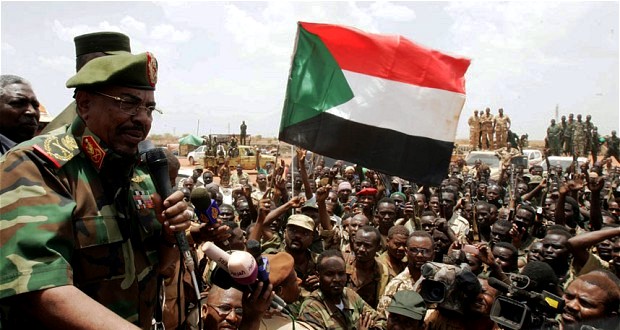Kartikey Shukla for BeyondHeadlines
“The first leg for any government is a disciplined military. We have problems with the way our military functions today. That’s a broken leg. We have civil society; right now it is very weak. The third leg is delivery of services. It is hard to deliver security…The fourth leg is political unity. We had political unity in the days leading up to the referendum [which led to independence]. Since the referendum, we have been having difficulties uniting our ranks. So right now the animal is standing on four crooked legs. If we do not fix these legs, the future is going to be very, very difficult”. – Jok Madut Jok, Culture Minister (South Sudan)
I have just finished my ethnographic work in the oil fields of South Sudan. I predicted for the unrest to resurface in my conclusion after having the overall understandings of the challenges which the new born country has come to face. It’s been a week since then and the newly independent nation is facing armed conflict again. The conflict broke out in the capital city of Juba, and now has reached to the country’s oil regions where clashes have occurred just after the Independence.
South Sudan is facing enormous challenges from the beginning of liberation. Apart from oil conflict, the internal problems have only magnified. Tribalism is the major threat for this new nation. Why ethnic strife? What is the history behind this? Will this conflict lead towards another civil war? Answers to these questions manifests from the present socio-economic and political environment of South Sudan.
Ethnic conflict is a new phenomenon for Southern Sudan, but it has transformed significantly over the period of time. Documented history has more to tell about the causes of conflicts. From the very beginning, “Cattle riots” is one issue over which the Tribal’s often fought. Oil played another important role in ethnic conflict during the second phase of the civil war. In 2005, civil war came to end after signing Comprehensive Peace Agreement (CPA) between both the nations.
Tribalism emerged with different interests just after independence, as the power struggle grew in the government. Dinka, one of the major tribes that claimed for South Sudan’s liberation has occupied the present government headed by Salva Kiir. The President has played an effective role to unite all tribes for the prosperity of the nation and in order to ensure an inclusive participation he has included leaders from other tribal groups in his cabinet.
The recent political crisis led by SPLM, a leading party in the national army can be described as “Tribalisation of Armed forces”. Here, I would like to clarify that majority of the SPLM comprised Guerrilla turned armed personal without any proper training in war or civic affairs. The state announced it as a coup attempted to over throw the functioning government. The fragmentation within SPLM is for power struggle between supporters of present president Salva Kiir and Ex-President Riek Machar.
Anthropologically, this conflict can be also seen as an ethnic struggle for power between Dinka and Nuer. Kiir belongs to the majority the Dinka Tribe and Riek to second major tribe, the Nuer. Underdevelopment and corruption are other major challenges responsible for all these internal conflict as after independence there has been a lack of funds to initiate development programmes in various parts of the nation independently.
International aid agencies including UN are working to rebuild the nation. South Sudan is leading from behind in all sectors of the Human Development Index. The widespread corruption and lack of governance have given space for Tribalism. The existing government has proposed for the first General Election in 2015 where all other political parties will be contesting election. Instability within armed forces could lead to a major internal conflict and initiate another civil war.
The only option to defeat all this problems is to initiate development programmes, reinitiate investment in agriculture so that people can engage themselves and last but the most important need of the hour is to reorganise politics through democratic election.
[The Author is affiliated with the Centre for Indian Studies in Africa (CISA), Johannesburg.]






















